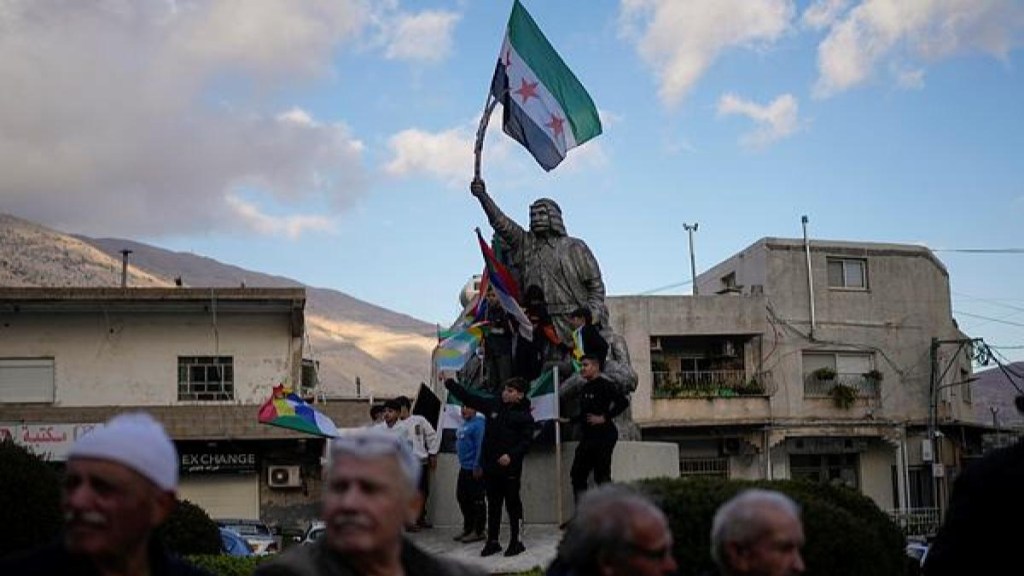The Golan Heights, a strategically significant region in the Middle East, has been at the heart of tensions between Israel and Syria for decades. Captured by Israel during the 1967 Six-Day War, the Golan Heights was fully annexed by Israel in 1981, a move that has never been recognized by the international community. This region holds military importance due to its elevated position, providing Israel with a commanding view of southern Syria and northern Israel. Moreover, it is rich in water resources, making it a valuable asset for Israel.
According to information in the public domain, since the outbreak of the Syrian civil war in 2011, the situation has become more complicated. With the collapse of Bashar al-Assad’s regime and the rise of various rebel factions, including Islamist and Kurdish forces, Israel has increasingly advanced its military presence in the Golan Heights. In particular, Israel has moved troops into the Syrian-controlled buffer zone, which was initially created in 1974 following a ceasefire agreement between Syria and Israel.
Israeli Prime Minister Benjamin Netanyahu has repeatedly asserted that the Golan Heights, which has been under Israeli control for over 60 years, will remain permanently part of Israel. This statement came as Israeli forces deployed up to 14 kilometers inside the Golan Heights to secure the area against hostile elements, including Iranian-backed militias and Hezbollah, which are seen as threats to Israel’s security.
Arab World’s Reaction
Israel’s growing influence in the Golan Heights has sparked strong reactions from several Arab nations. Saudi Arabia, Qatar, and Iraq have condemned Israel’s actions, accusing it of violating international law and destabilizing the region.
- Saudi Arabia has labelled Israel’s actions as a direct violation of international norms, stating that Israel’s continued occupation of Syrian territory undermines efforts to restore Syria’s territorial integrity and stability. Riyadh views Israel’s expansion as a significant obstacle to regional peace.
- Qatar expressed concern that Israel’s occupation of Syrian territory would lead to further instability and violence in the Middle East. Qatar’s foreign ministry warned that such actions would exacerbate tensions in an already volatile region.
- Iraq has called for Israel to halt its military activities in Syria, emphasizing the need for Syria’s sovereignty to be respected. Iraq has also urged the United Nations Security Council to intervene and take action against Israel’s “aggression.”
These reactions reflect the broader geopolitical divides in the region. Despite recent shifts in alliances, such as the warming of relations between Israel and some Gulf Arab states, particularly regarding shared concerns over Iran, there is still strong opposition to Israeli occupation of Arab lands.
International Context: US Support and Turkish Involvement
The situation in the Golan Heights is also affected by international actors. The US has played a significant role in the region, especially under former President Donald Trump, who officially recognized Israeli sovereignty over the Golan Heights in 2019. This move was seen as a bold endorsement of Israel’s position, despite widespread international condemnation.
The ongoing Syrian conflict has also drawn in other regional powers, most notably Turkey, which has conducted operations in northern Syria against Kurdish forces it deems to be terrorists. Turkey’s incursions have added another layer of complexity to an already volatile situation, further complicating the geopolitical landscape.
Bottomline
Israel’s military advances in Syria, especially in the Golan Heights, have serious implications for the region. These actions not only worsen tensions with Syria but also draw sharp criticism from the Arab world. While Israel’s position on the Golan Heights remains firm, the wider Arab response demonstrates the deep divisions and enduring conflicts that continue to shape the Middle East. As the situation unfolds, the international community’s response, particularly from powers like the US and Turkey, will likely play a crucial role in determining the future of the region.

